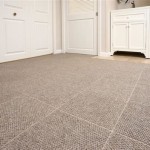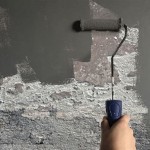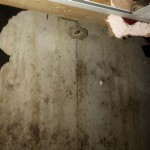What Humidity Should My Basement Be In Summer?
Basements, often seen as a cool refuge during the summer months, can become a breeding ground for moisture and humidity. This is particularly true in humid climates, where the warm air carries a lot of moisture that can easily infiltrate your basement. Understanding the optimal humidity levels for your basement is crucial for ensuring its health and preventing potential problems like mold growth, structural damage, and health issues.
The ideal humidity level for a basement in the summer typically falls between 40% and 60%. Maintaining this range helps to create a comfortable and healthy environment while minimizing the risks associated with excessive humidity. However, the specific ideal humidity level may vary slightly depending on factors like your location, basement construction, and personal preferences.
The Dangers of High Basement Humidity
High humidity in a basement can lead to a number of serious issues. Here are some of the most prevalent dangers:
- Mold Growth: Mold thrives in damp environments and can quickly proliferate in basements with high humidity. Mold spores are harmful to human health, triggering allergies, respiratory problems, and other health issues.
- Structural Damage: Excessive moisture can damage the structure of your basement, leading to cracking, warping, and deterioration of walls, floors, and foundations.
- Wood Rot: Wood structures in your basement, like beams, joists, and furniture, are susceptible to rot when exposed to high humidity. This can lead to structural problems and require costly repairs.
- Pest Infestations: High humidity can create an ideal environment for pests like termites, cockroaches, and other insects, making your basement less habitable and posing health risks.
Strategies for Managing Basement Humidity
Effective basement humidity control involves a combination of strategies, including:
1. Ventilation
Good ventilation is essential for reducing humidity in a basement. This can be achieved through:
- Exhaust Fans: Install exhaust fans in areas like bathrooms and laundry rooms to remove moisture-laden air.
- Vents: Ensure your basement has properly functioning vents, which allow fresh air to circulate and remove moisture.
- Air Circulation: Place fans in your basement to create air movement and help dry out the space.
2. Dehumidifiers
Dehumidifiers are highly effective at removing excess moisture from the air. Select a dehumidifier based on the size of your basement and the level of humidity you need to control. Regular maintenance and emptying of the dehumidifier's water tank are essential.
3. Moisture Barriers
Installing moisture barriers in your basement can prevent water from entering and contributing to humidity. This may include:
- Foundation Waterproofing: Ensure your basement foundation is properly waterproofed with a barrier to block water infiltration.
- Vapor Barriers: A vapor barrier on basement walls and floors can help stop moisture from migrating up from the ground.
4. Source Control
Addressing the sources of humidity in your basement can significantly reduce the overall moisture levels. This includes:
- Leak Identification: Inspect your basement for leaks in pipes, windows, and doors, and repair them promptly.
- Water Drainage: Ensure your gutters and downspouts are functioning correctly to divert water away from your basement.
- Dryer Venting: Properly vent your clothes dryer to the outside to prevent moist air from entering your basement.
Monitoring Basement Humidity
Regular monitoring of your basement's humidity levels is crucial for ensuring that your humidity control strategies are effective. You can use a hygrometer to measure the relative humidity in your basement. Aim to maintain the humidity level between 40% and 60% and adjust your humidity control methods as needed.
By implementing these strategies and monitoring your basement's humidity levels, you can create a comfortable, healthy, and moisture-free environment for your family. Remember, a properly maintained basement is a valuable asset to your home, and taking steps to control humidity is essential for its longevity and your well-being.

How To Achieve An Ideal Basement Humidity Of 30 50

How To Lower Your Basement S Humidity Level

Dehumidifier Setting Chart What Should Be Set At

Moisture In Basements Causes And Solutions Umn Extension

How To Achieve An Ideal Basement Humidity Of 30 50

A Guide To Controlling Nc Home Humidity Newcomb And Company

How To Achieve An Ideal Basement Humidity Of 30 50

What Is The Ideal Basement Humidity Level Epp Foundation Repair

How Does Summer Humidity Affect A Home S Basement

How To Lower Your Basement S Humidity Level
Related Posts







